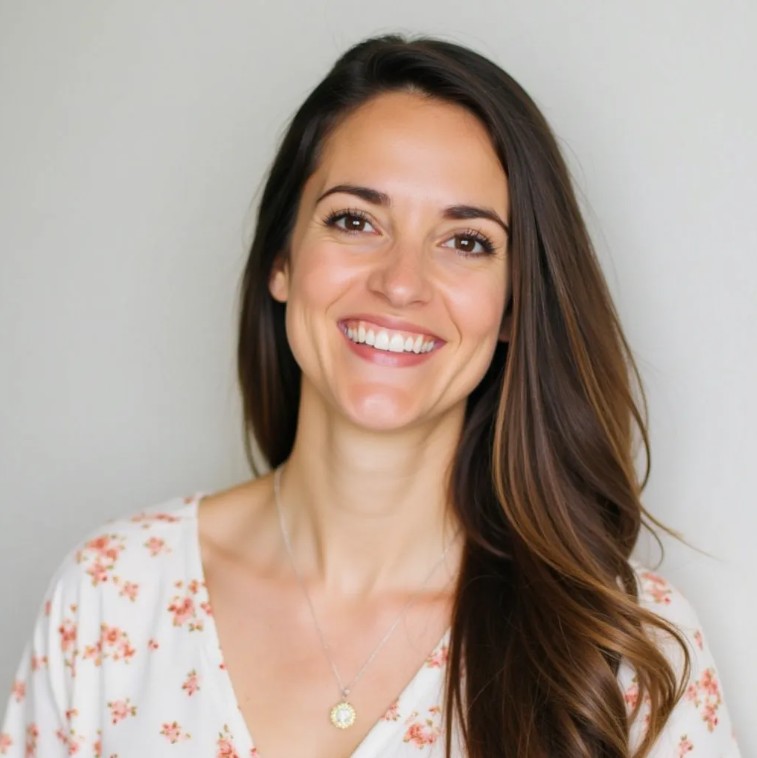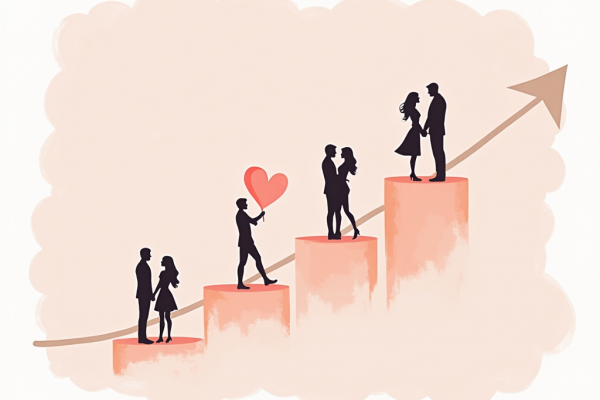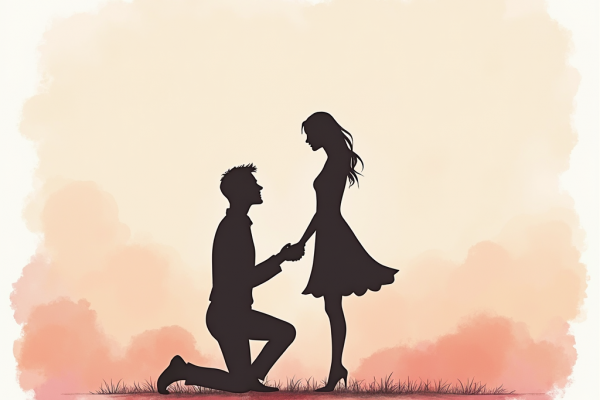
Decoding the Conservative Dating Scene: Lessons from My Year-Long Experiment
Reading time: 11 minutes
Table of Contents
- Introduction: Why I Decided to Date Conservative Men
- Methodology: How I Structured My Dating Experiment
- Key Findings: What I Discovered About Conservative Dating
- The Conservative-Progressive Divide in Dating
- Common Challenges and How I Navigated Them
- Success Stories: When Political Differences Didn’t Matter
- Practical Advice for Cross-Political Dating
- Your Political Dating Compass: Navigating Forward
- Frequently Asked Questions
Introduction: Why I Decided to Date Conservative Men
After five years of dating in a major coastal city, I noticed a pattern in my dating life: I was consistently matching with and dating men who shared my progressive political values. While these relationships felt comfortable ideologically, they weren’t necessarily more successful or fulfilling. This realization coincided with growing concerns about political polarization in America, prompting a question: Was I limiting my dating pool based on preconceived notions about political compatibility?
As a dating coach who advises clients to keep an open mind, I realized I wasn’t following my own advice. So, I decided to challenge my assumptions with a structured experiment: for one year, I would intentionally date men who identified as politically conservative or moderate-conservative—something I had previously avoided in my dating profiles.
This wasn’t just about expanding my dating options; it was about understanding whether political differences necessarily doom romantic relationships, or if meaningful connections could transcend the partisan divide. In an era where dating apps allow us to filter potential matches based on increasingly specific criteria, I wanted to examine whether this political filtering was helping or hurting our collective search for connection.
Methodology: How I Structured My Dating Experiment
Setting Parameters
To ensure my experiment yielded meaningful insights, I established clear parameters:
- Duration: 12 months (January through December 2022)
- Dating Pool: Men who self-identified as conservative or moderate-conservative on dating apps
- Minimum Sample: At least 30 first dates, 10 second dates, and 3 relationships lasting longer than one month
- Documentation: Journal entries after each date, tracking patterns, surprises, and relationship outcomes
- Honesty Policy: Full transparency about my own political views when asked directly
Data Collection Approach
Throughout the experiment, I collected both quantitative and qualitative data. I tracked concrete metrics like date duration, topics discussed, and comfort levels. More importantly, I documented the emotional and interpersonal dynamics: How did conversations flow when politics came up? Did we find common ground in other areas? Was there chemistry despite ideological differences?
I created a simple rating system (1-10) across multiple dimensions: conversation quality, physical attraction, value alignment, and overall compatibility. This allowed me to compare these dates objectively with my previous dating experiences.
Key Findings: What I Discovered About Conservative Dating
After 41 first dates, 14 second dates, and 4 relationships that lasted between one and four months, several patterns emerged that challenged my initial assumptions:
Stereotype Disruption
The most immediate discovery was how inaccurate many of my stereotypes had been. The conservative men I dated represented diverse perspectives that defied easy categorization:
- Kevin, a corporate attorney, strongly supported LGBTQ+ rights while maintaining traditional economic views
- Marcus, who identified as a “constitutional conservative,” was passionate about environmental conservation and sustainable living
- Tyler, a military veteran, held deeply conservative family values alongside progressive views on healthcare and education
The reality was much more nuanced than the monolithic “conservative man” I had imagined. While certain patterns did emerge across my dates, the individuality of each person consistently surprised me.
A particularly revealing moment came during my third date with James, when he explained: “I hate how the labels ‘conservative’ and ‘liberal’ have become shorthand for an entire personality. I’m conservative on some issues because I believe they lead to better outcomes, not because I don’t care about people.”
Communication Patterns
One consistent observation involved communication styles. Compared to my previous dating experiences with more progressive men, my conservative dates generally:
- Expressed opinions more directly and with greater certainty
- Were less likely to qualify statements with acknowledgments of privilege or systemic factors
- Placed higher value on debate and intellectual disagreement
- Demonstrated more comfort with traditional gender roles in dating interactions
This directness sometimes created friction but also led to surprisingly refreshing conversations. As one date reflected: “I appreciate that you don’t agree with me, but you’re actually listening instead of just waiting to explain why I’m wrong.”
The Conservative-Progressive Divide in Dating
When comparing my conservative dating experiences with my previous progressive dating history, several key differences emerged:
| Aspect | Dating Conservative Men | Dating Progressive Men | Impact on Compatibility |
|---|---|---|---|
| Date Planning | More traditional approaches; usually planned and paid for dates | More collaborative planning; often split costs | Medium – affected early impressions |
| Conflict Style | Direct confrontation; solution-oriented | Processing-focused; emphasis on emotional impact | High – created significant friction |
| Family Discussion | Earlier and more frequent mentions of family plans | Later and more tentative discussions about family | Medium – revealed timeline differences |
| Value Expression | Values often expressed through actions and decisions | Values often explicitly discussed and analyzed | Low – different styles but compatible |
| Physical Intimacy | Generally slower progression; more traditional courtship | Typically quicker progression; more direct communication | Medium – required explicit discussion |
These differences created both challenges and unexpected benefits. The more traditional approach to dating often felt more structured and intentional, though sometimes less spontaneous. The emphasis on family planning led to earlier clarity about long-term compatibility, which efficiently highlighted potential dealbreakers.
Visualization: Political Values Discussed on Dates
Frequency of Political Topics Discussed (% of Dates)
Common Challenges and How I Navigated Them
While some differences proved manageable, others created recurring challenges throughout my experiment. Understanding these challenges—and developing strategies to address them—became crucial to dating across political lines.
Challenge #1: Handling Fundamental Value Differences
The most significant challenge emerged when deeply held values directly opposed each other. Topics like racial justice, LGBTQ+ rights, and reproductive autonomy sometimes revealed incompatible worldviews that no amount of mutual attraction could overcome.
Case Study: My three-month relationship with Chris ended when we couldn’t reconcile our fundamental views on gender equality. Despite strong chemistry and shared interests in hiking and entrepreneurship, his belief that women were “naturally better suited” for caregiving roles while men were “naturally designed” for leadership eventually created an unbridgeable gap.
Navigation Strategy: I developed a personal framework for distinguishing between political differences I could accept versus value differences that represented dealbreakers. This allowed for flexibility on policy disagreements while maintaining boundaries around core values.
Challenge #2: Managing External Judgment
An unexpected challenge came from friends and family who expressed concern or disapproval about my dating choices. Comments like “How could you date someone who voted for X?” or “Doesn’t he believe Y about your rights?” created external pressure on relationships that were already navigating internal differences.
Case Study: When I brought Daniel to a friend’s dinner party, he faced subtle but persistent political interrogation that eventually led him to withdraw from the social event. Days later, he expressed feeling “prejudged and unwelcome” among my social circle.
Navigation Strategy: I began setting clearer boundaries with friends about respectful treatment of my dating partners regardless of political affiliation. I also became more selective about which social contexts to introduce political differences into, allowing relationships to build strength before facing external scrutiny.
Success Stories: When Political Differences Didn’t Matter
Despite the challenges, several meaningful connections emerged that transcended political labels. These success stories revealed valuable patterns about when and how political differences can be successfully navigated:
Michael: The Value-Aligned Conservative
Michael and I dated for four months despite significant differences in our policy preferences. What made our relationship work was the discovery that our underlying values—honesty, compassion, personal responsibility, and fairness—were remarkably aligned even though we reached different conclusions about how these values should manifest in policy.
During a memorable conversation about healthcare, we realized we both wanted the same outcome (affordable access for everyone) but held different views about the government’s role in achieving it. This shared value/different approach pattern emerged repeatedly, allowing us to respect each other’s positions even in disagreement.
Key Learning: Look beneath policy positions to identify shared values, which can provide a foundation of respect even amid disagreement.
Jason: The Intellectual Sparring Partner
My relationship with Jason featured the most political debate, yet paradoxically, the least political tension. A constitutional law professor with conservative leanings, Jason approached political discussions as intellectual exercises rather than personal judgments.
We established ground rules for political conversations: lead with curiosity, acknowledge valid points, critique ideas rather than character, and end heated discussions with affirmation of respect. These boundaries transformed potentially divisive topics into opportunities for deeper understanding.
Key Learning: Clear communication boundaries and mutual intellectual respect can transform political differences from threats into opportunities for growth.
Practical Advice for Cross-Political Dating
Based on my year-long experiment, here are the most effective strategies for navigating political differences in dating:
First Date Strategies
- Lead with curiosity, not assumptions. Ask open-ended questions about their specific views rather than making generalizations based on political labels.
- Look for reasoning patterns, not just conclusions. How someone arrives at their position often reveals more about compatibility than the position itself.
- Identify non-negotiables early. Be honest with yourself about which values represent absolute requirements for compatibility.
- Share perspectives, not lectures. When expressing your own views, frame them as personal perspectives rather than objective truths.
- Watch for respect signals. Pay attention to how they discuss people who hold opposing viewpoints—this often predicts how they’ll treat you when disagreements arise.
Building Relationships Across Differences
If the first few dates reveal potential despite political differences, these strategies can help build stronger foundations:
- Establish “political discussion” parameters. Set boundaries around when, how, and how often political topics enter conversation.
- Create a “values inventory” together. Identify the core principles you each prioritize, looking for alignment beneath policy disagreements.
- Develop a shared language for tension. Create cues or phrases to deescalate heated moments before they damage connection.
- Actively build common ground. Intentionally invest in shared interests and experiences unrelated to politics.
- Practice both advocacy and inquiry. Balance expressing your views with genuine curiosity about theirs.
As one particularly insightful date told me: “The problem with dating across political lines isn’t the differences themselves—it’s thinking that agreement equals understanding. Sometimes we understand each other perfectly well and still disagree, and that’s okay as long as there’s respect.”
Your Political Dating Compass: Navigating Forward
After a year of intentionally dating across political lines, I’ve emerged with a nuanced perspective on political compatibility. Here are the guideposts I now use to navigate my own dating journey:
Five Key Insights for Political Dating Navigation
- Distinguish between policy disagreements and value conflicts. The former can often be navigated; the latter rarely can.
- Pay attention to how someone disagrees, not just what they disagree about. Respectful disagreement indicates relationship potential; contemptuous disagreement predicts failure.
- Clarify your non-negotiables, but question your preferences. Challenge yourself to distinguish between deal-breakers and mere discomforts.
- Look for compatible communication patterns rather than identical views. Similar approaches to conflict resolution predict relationship success better than similar political opinions.
- Remember that people evolve. The most successful cross-political relationships I observed featured partners who continued learning and growing—sometimes even influencing each other’s views over time.
As dating apps increasingly encourage political filtering, we should consider what we gain and lose through these technological boundaries. While they may protect us from uncomfortable conversations, they might also limit our exposure to diverse perspectives and deny us connections with compatible partners who simply arrive at different political conclusions.
My experiment didn’t end with me changing my political views or deciding that political compatibility doesn’t matter. Instead, it revealed a more complex reality: political differences exist on a spectrum of navigability, with some representing exciting opportunities for growth and others signaling genuine incompatibility.
What’s your experience with dating across political differences? Have you established political boundaries in your dating life, or do you remain open to connections that transcend political labels? The most important question may not be whether you date within or across political lines, but whether you approach each potential connection with genuine curiosity, clear boundaries, and authentic self-knowledge.
Frequently Asked Questions
Isn’t dating someone with opposing political views a sign of privilege?
This question emerged frequently throughout my experiment, and it deserves serious consideration. For people whose basic rights and dignity are directly threatened by certain political positions, choosing to date across political lines can indeed reflect privilege. The ability to view certain political stances as “just differences of opinion” often correlates with how personally those stances affect your life. Throughout my experiment, I maintained certain non-negotiable values around human dignity and equality that superseded any potential connection. Each person must determine their own boundaries based on their lived experience and core values.
Did any of the conservative men change your political views?
While my fundamental political framework remained intact, several conversations challenged my thinking in meaningful ways. For example, discussions about economic policy with a date who owned a small business gave me greater appreciation for regulatory burden concerns. Conversations about community versus government solutions with another partner introduced nuance to my thinking about social safety nets. Rather than wholesale changes to my political positions, I experienced a broadening of perspective and greater understanding of different viewpoints—which was a valuable outcome in itself.
What was the biggest surprise from your dating experiment?
The most unexpected discovery was how frequently political labels failed to predict actual compatibility. Some of my most challenging relationship dynamics occurred with men whose political identity matched mine on paper but whose communication style, conflict approach, or personal values created friction. Conversely, some connections with politically different men revealed surprising alignment in relationship fundamentals like communication, respect, and emotional intelligence. This reinforced that while political compatibility matters, it’s just one factor among many that determine relationship success—and sometimes not the most important one.

Article reviewed by Ljiljana Petrović, Trauma-Informed Love Coach | Healthy Relationships After Emotional Wounds, on May 2, 2025






